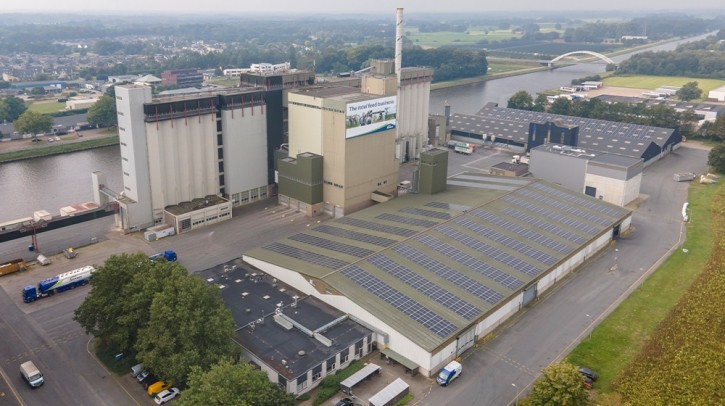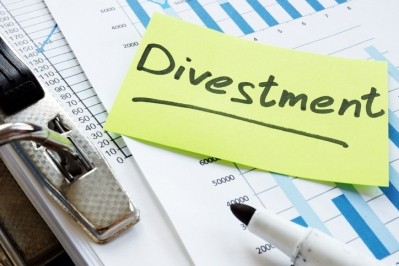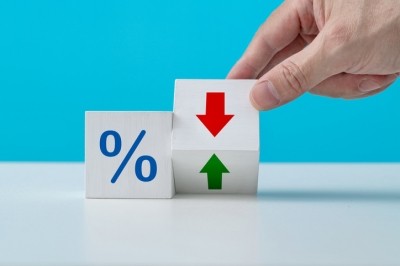ForFarmers looks to balance FCR with lower energy consumption during processing

“That is the balancing act we have right now,” said Ad van Wesel, director of the ForFarmers Nutrition Innovation Centre (NIC).
The most energy intensive processes within a plant are the grinding, mixing and pelleting steps. So, they would be the steps to zone in on in an energy reduction drive.
Any savings gained on moves to reduce mixing costs could result in a sub-optimal feed product, though, and there is a risk that lowering pelleting costs might result in poorer on-farm feed performance. Pelleting typically generates a 5% improvement in the feed conversion ratio (FCR), he said.
Grinding coarser would also reduce energy utilization, but, again, if this has direct repercussions on feed conversion then it would affect the farmers’ bottom line, and ultimately the CO2 footprint of the final product, stressed van Wesel.
Some 95% of the CO2 footprint of feeds comes from the raw materials in the formulation. “Processing and transportation only add 5% to that footprint. So, if feed efficiency drops because we save some energy in the mill, then the net environmental impact will soon be negative.”
Fine-tuning operations
However, this doesn’t mean that feed mills shouldn’t try to reduce energy used in their operations, he said.
Given today’s energy prices, a little economizing can go a long way. “If you look at the energy bill a company like ForFarmers has with, with eight to ten million tons of feed output, it is huge. If we can save one to two euros per ton, that represents a lot of money.”
ForFarmers is currently reappraising feed form in this regard. It would have typically supplied complementary feeds as pellets to Dutch pig farms that rely on liquid feeding systems – those containing significant amounts of liquid co-products – spent grains, etc. “We are carrying out testing to determine if we really need to pellet such concentrated feed, or whether it is free-flowing enough to be supplied in a mash form.”
The company is also reconsidering whether the expansion step is totally necessary in today’s environment of soaring energy prices and given the underlying market conditions in the swine sector.
Feed mills no longer have the same tonnage requirements due to the decline in swine markets in the Netherlands, in Germany, in Belgium, and the UK. The pig farmers that have managed to stay in business, those that have withstood market pressures, are the ones that generally feed a lot of those liquid coproducts, and, therefore, they need less feed or a more concentrated feed supply, he added.
“So, if feed mills supplying pig farms use the expander for capacity reasons, they probably shouldn’t do so right now with current costs and overcapacity in the market.”
In Germany, ForFarmers is also playing out various scenarios, evaluating a switch to meal instead of pellet production, for example, if the government there imposes a reduction in gas usage this winter.
Renewable energies
But sustainability has long been on the agenda of ForFarmers, it has not just become a priority given the recent hike in energy prices.
One of the company’s goals is to meet 50% of its energy demand from alternative power sources by 2025. Its Lochem plant is its flagship mill in this respect - the thousands of solar panels and the biomass power plant at that production site reflect such ambitions, said van Wesel.
The company saves around 1.7 million m³ of natural gas annually thanks to that biomass power plant. It runs entirely on local wood waste from the Achterhoek region.
And its factory in Deventer will soon be run partly on biogas from farming customers. Five dairy farmers are working on a gas pipeline, which will supply that factory with biogas generated from manure on their farms. The biogas will be used to heat the boiler that produces the steam needed to press pellets, replacing natural gas sources.
This kind of innovation is occurring at its plants in all the markets that ForFarmers operates in, he said. Some of its facilities in the UK are evaluating the use of wind energy, other operations are considering installing solar panels on unused land on the grounds of the plant, while, in Poland, there are projects underway focused on switching plants to natural gas from coal, said the innovation lead.










